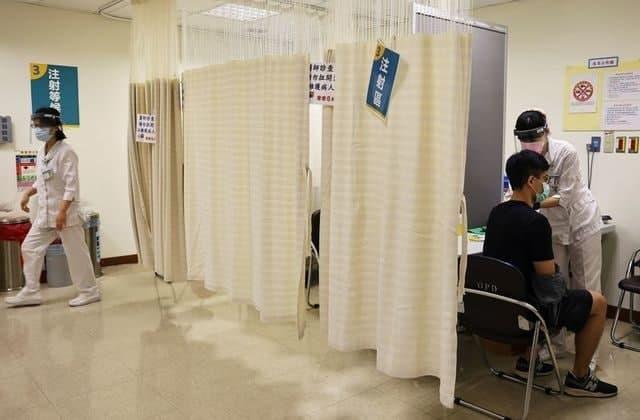BEIJING, May 25 (Reuters) - China on Monday (May 24) offered to urgently send COVID-19 vaccines to Taiwan to help it battle a sharp rise in coronavirus infections, drawing an angry response from Taipei and a swipe from Washington, which said US vaccines did not have strings attached.
China and Chinese-claimed Taiwan have sparred repeatedly during the pandemic.
Taipei has accused Beijing of spreading fake news and trying to limit its access to the World Health Organization (WHO), while Beijing says Taipei is trying to politicise the pandemic for political gain.
After months of relative safety from the pandemic, Taiwan is dealing with a spike in COVID-19 cases and is rapidly running out of vaccines, having received only slightly more than 700,000 to date for its more than 23 million people.
In a late night statement, China's policy-making Taiwan Affairs Office said it was extremely concerned about the epidemic currently "raging" in Taiwan, noting it had repeatedly offered help to the island.
Certain groups and people in Taiwan have been calling for the purchase of Chinese vaccines, it added.
"Our attitude is very clear: We are willing to make arrangements quickly so that the vast majority of Taiwan compatriots will have mainland vaccines to use as soon as possible," the office said.
"If necessary, we are also willing to actively consider sending epidemic prevention and control experts to Taiwan, to share anti-epidemic experience with Taiwan's medical and health professionals."
But in response, Taiwan's Mainland Affairs Council said China had not used any of the existing channels between the two to provide information about its vaccines, and implied that Beijing was behind Taiwan's difficulties in getting more shots.
Taiwan has repeatedly said it does not trust Chinese vaccines, and has been angered by what it says are Beijing's efforts to obstruct its access to the WHO, including the body's annual ministerial assembly that opened earlier on Monday.
China, Russia and the United States have sought to further their countries' geopolitical clout through so-called vaccine diplomacy, though the Chinese government has repeatedly denied that it uses the shots to gain diplomatic advantage.
China views Taiwan President Tsai Ing-wen and her ruling Democratic Progressive Party as separatists bent on formally declaring the island's independence.
Tsai says China has no right to speak for Taiwan and has denounced it for increased military activities near the island over the past year, which have continued even as Taipei battles increased COVID-19 cases.
